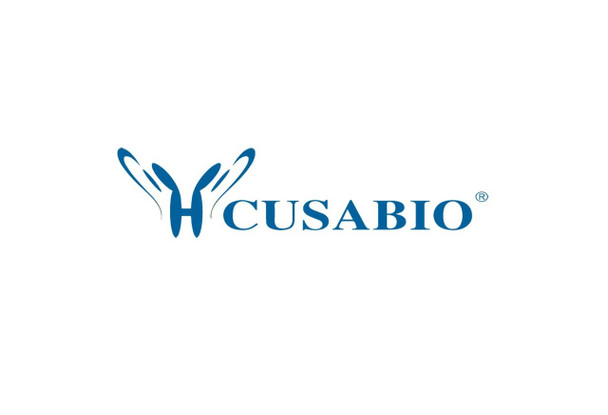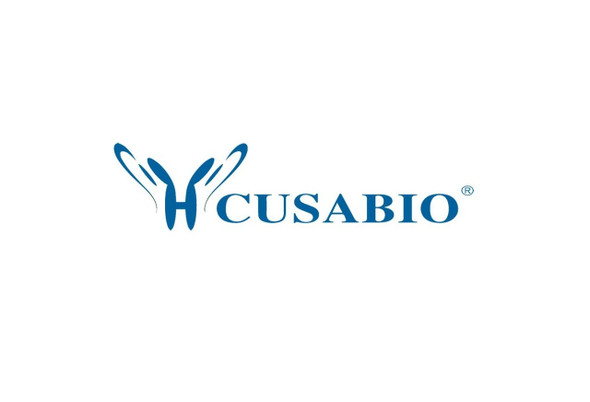Cusabio Rattus norvegicus Recombinants
Recombinant Rat Gremlin-1 (Grem1) | CSB-EP009892RAc7
- SKU:
- CSB-EP009892RAc7
- Availability:
- 13 - 23 Working Days
Description
Recombinant Rat Gremlin-1 (Grem1) | CSB-EP009892RAc7 | Cusabio
Alternative Name(s): Cysteine knot superfamily 1, BMP antagonist 1 Down-regulated in Mos-transformed cells protein Cktsf1b1, Drm
Gene Names: Grem1
Research Areas: Cardiovascular
Organism: Rattus norvegicus (Rat)
AA Sequence: KKKGSQGAIPPPDKAQHNDSEQTQSPPQPGSRTRGRGQGRGTAMPGEEVLESSQEALHVTERKYLKRDWCKTQPLKQTIHEEGCNSRTIINRFCYGQCNSFYIPRHIRKEEGSFQSCSFCKPKKFTTMMVTLNCPELQPPTKKKRVTRVKQCRCISIDLD
Source: E.coli
Tag Info: C-terminal 6xHis-tagged
Expression Region: 25-184aa
Sequence Info: Full Length of Mature Protein
MW: 20.2 kDa
Purity: Greater than 85% as determined by SDS-PAGE.
Relevance: Cytokine that may play an important role during carcinogenesis and metanephric kidney organogenesis, as a BMP antagonist required for early limb outgrowth and patterning in maintaining the FGF4-SHH feedback loop. Down-regulates the BMP4 signaling in a dose-dependent manner. Antagonist of BMP2; inhibits BMP2-mediated differentiation of osteoblasts (in vitro).Acts as inhibitor of monocyte chemotaxis. Can inhibit the growth or viability of normal cells but not transformed cells when is overexpressed.
Reference: "Identification of drm, a novel gene whose expression is suppressed in transformed cells and which can inhibit growth of normal but not transformed cells in culture." Topol L.Z., Marx M., Laugier D., Bogdanova N.N., Boubnov N.V., Clausen P.A., Calothy G., Blair D.G. Mol. Cell. Biol. 17:4801-4810(1997)
Storage: The shelf life is related to many factors, storage state, buffer ingredients, storage temperature and the stability of the protein itself. Generally, the shelf life of liquid form is 6 months at -20?/-80?. The shelf life of lyophilized form is 12 months at -20?/-80?.
Notes: Repeated freezing and thawing is not recommended. Store working aliquots at 4? for up to one week.
Function: Cytokine that may play an important role during carcinogenesis and metanephric kidney organogenesis, as a BMP antagonist required for early limb outgrowth and patterning in maintaining the FGF4-SHH feedback loop. Down-regulates the BMP4 signaling in a dose-dependent manner (By similarity). Antagonist of BMP2; inhibits BMP2-mediated differentiation of osteoblasts (in vitro) (By similarity). Acts as inhibitor of monocyte chemotaxis
Involvement in disease:
Subcellular Location: Secreted
Protein Families: DAN family
Tissue Specificity: Highly expressed in the brain, kidney, spleen, and testis and weakly expressed in the lung and liver. Predominantly expressed in differentiated cells as neurons in brain, type I cells in lung and globlet cells in intestine.
Paythway:
Form: Liquid or Lyophilized powder
Buffer: If the delivery form is liquid, the default storage buffer is Tris/PBS-based buffer, 5%-50% glycerol. If the delivery form is lyophilized powder, the buffer before lyophilization is Tris/PBS-based buffer, 6% Trehalose, pH 8.0.
Reconstitution: We recommend that this vial be briefly centrifuged prior to opening to bring the contents to the bottom. Please reconstitute protein in deionized sterile water to a concentration of 0.1-1.0 mg/mL.We recommend to add 5-50% of glycerol (final concentration) and aliquot for long-term storage at -20?/-80?. Our default final concentration of glycerol is 50%. Customers could use it as reference.
Uniprot ID: O35793
HGNC Database Link: N/A
UniGene Database Link: UniGene
KEGG Database Link: KEGG
STRING Database Link: STRING
OMIM Database Link: N/A









